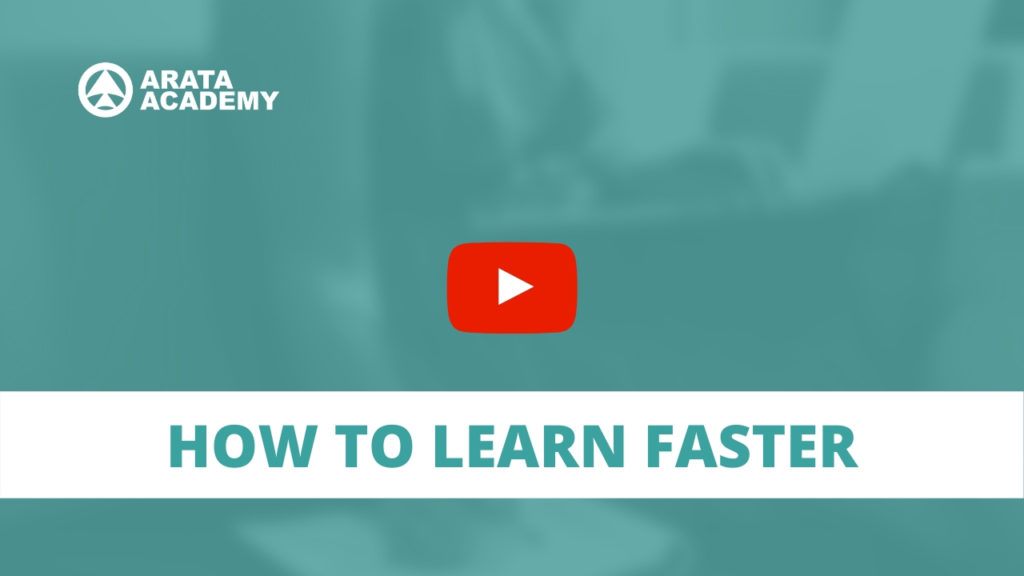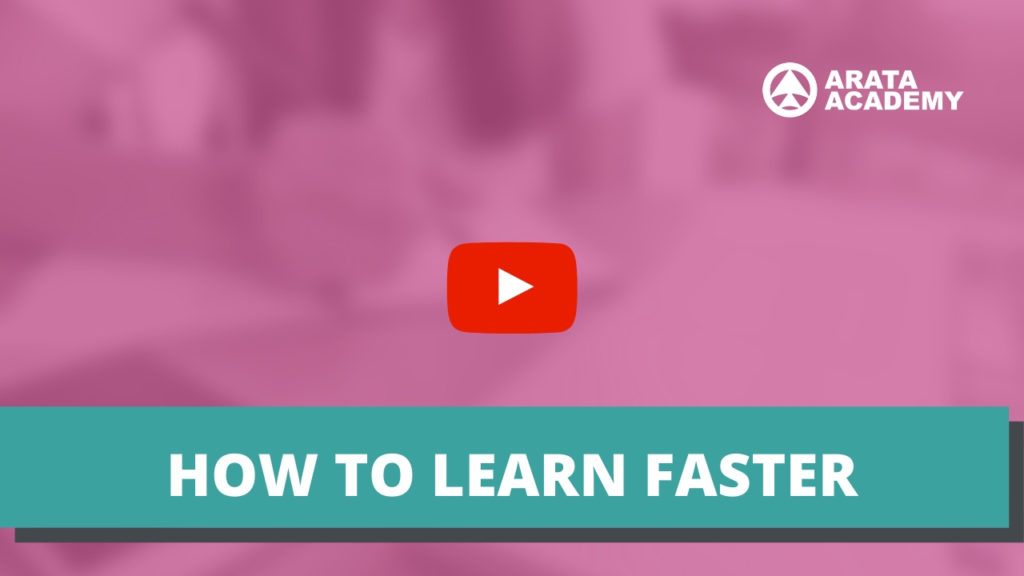Hello! Seiiti Arata. So you’ve been preparing for a very difficult exam for a long time. In addition to having complex content that will require a very sharp reasoning ability, the test requires you to absorb a very large volume of information. So this is different from those exams for which you can simply memorize a couple of ideas, write everything in a hurry and immediately forget it all the minute after the exam.
So this is a special video for those of you who will face a big exam that will need weeks, months or maybe years of preparation. The techniques for you to prepare are very different from simply memorizing a couple of ideas a few minutes before a simple test.
1. You need to organize yourself.
You must learn to organize yourself, learn how to study, and to learn how to perform tests.
Each of these skills is very different from the others: Organize, study, perform test.
Maybe you have great energy and enthusiasm now that you’re studying for this test. Great! Just do not forget to keep balance in your life. This is part of being organized. Do not put other aspects of your life too much aside. Everything has a consequence, and a dimension of your life that is not being properly cared for will cause problems further ahead.
Organizing is knowing how to create a long-term plan. You will need to study and review for a long time, since the subject matter is very dense.
You will know if you managed to achieve the ideal organizational level if you can keep your study pace for several weeks or several months. Only then you will reap results. You need to understand what is important in your life. Schedule your activities according to the importance of each one.
If you are sleeping over the books, it’s a sign of lack of organization. You need to take care of your physical integrity and have nights of normal sleep. Only then can you perform well in your study sessions. We’ve seen it in the Productivity Ninja course—if you do not already know, this is the advanced course in productivity by Arata Academy. You can visit the http://arata.se/timemanagement link to learn more about organization.
2. Learn how to study.
Be aware that there are two phases: There is the phase of understanding the information, and then comes the information retention phase.
For example, when you are reading an interesting book, you say you understand the story. But then I ask you to tell me more about the book you are reading, and you do not know how to tell the story!
In this case you understood the story. There was understanding. But there was no retention. You cannot retell the story to someone else.
The study of any subject is the same: you need first to understand, and then you need to retain. The brain learns through smart repetitions; this is the process by which we fix what we understand in our minds. This is the revision. And in our learning course, How to Learn Faster, we have specific lessons on revision techniques. You can see more at the link http://arata.se/howtolearn.
In the review stage, you should train your ability to retrieve the learned content. There are several ways to do this: You can look for multiple-choice questions and understand the right option. But you must also understand why other choices are wrong. When you read a long book, it is essential that you understand what is most important, and what is the probability of certain information being included in an examination?
Write down a key tip here: when you study, understand that no information is isolated. Knowledge is constructed from blocks and connections. So whenever you study something new, it is necessary to draw bridges, to understanding the connection between the different pieces of information. This is how you assimilate information. To understand geometry, you need to understand basic arithmetic concepts. To understand literature, it is necessary to understand history and what was happening at that time. You will not solve certain equations in chemistry balancing without math skills. You see? If you are having difficulty in one subject, there are probably other previous issues, other prerequisites that you have forgotten or never truly learned.
Without review there is no assimilation, and therefore there is no learning. The good news is that the review phase requires less immersion than the understanding phase. This means that if you have even a few minutes—in the morning before going to work, in the middle of your lunch break, or before bed—you’ll have to be efficient by making smart reviews. In the course How to Learn Faster, I give you exercises that allow you to practice your ability to review.
3. Learn how to sit for exams.
If I tell you I have a problem because I have a headache, and I further tell you that I drank half a bottle of whiskey last night… well, my problem is not the headache. The problem was drinking half a bottle of whiskey.
If you think you’re having trouble taking tests, and you say you forgot everything because you were nervous or that you misunderstood that tricky question… well, none of this is a problem in doing exams. The problem arose before the exam in lack of organization, lack of correct study, lack of proper review, lack of preparation.
One who is too concerned about the outcome of the race will be anxious. These people are delaying the happiness that will only happen on the day of passing the big exam. This is a mistake. They view the whole process of getting to their final destination as an inconvenience that they would like to avoid, so they are unwilling or unable to devote time to study and practice. In this way, they will not have the discipline to get to their final destination. Learning will not happen.
That said, there are a few techniques to learn how to prepare for the test. You will again need organization—you should know how much total time you have and how many questions there are in order to distribute your time properly. Look for examples of exams from previous years. Pay close attention to the scope of the test so you will be prepared for the kinds of questions that will appear.
Unfortunately, the exam does not assess your true expertise, your full knowledge. The exam is only measuring your ability to respond to very specific, predefined questions. It may be fair, it may be unfair, but the reality is this: during preparation, to have a good grade, you want to focus your study on the themes that will be asked on the exam.
The exam is a bureaucratic procedure. You need to find efficient ways to address this bureaucracy. In addition to studying the subject matter, you also need to devote time to devising your strategy and understanding what are the likely questions. You want to learn how to present your answer in such a way as to receive the highest grade from the examiners.
You do not fail when you make mistakes. You fail when you give up. Do not doubt your ability. And know that even if there are other contestants studying more hours than you, it does not mean they are studying efficiently. You can make better use of your time with deliberate practice.
If you study fewer hours but more efficiently, you can overcome those who put in more time but manage it poorly. Go ahead, and do not be discouraged. There are many learning techniques—some are proven to be good, and others are questionable. In the courses at Arata Academy I always identify the best techniques for you. And in the course, How to Learn Faster, we have a thoughtful selection of techniques that brings the best result possible, and we put it all together in a fast course that you can complete in a single day. Visit the link http://arata.se/howtolearn.

